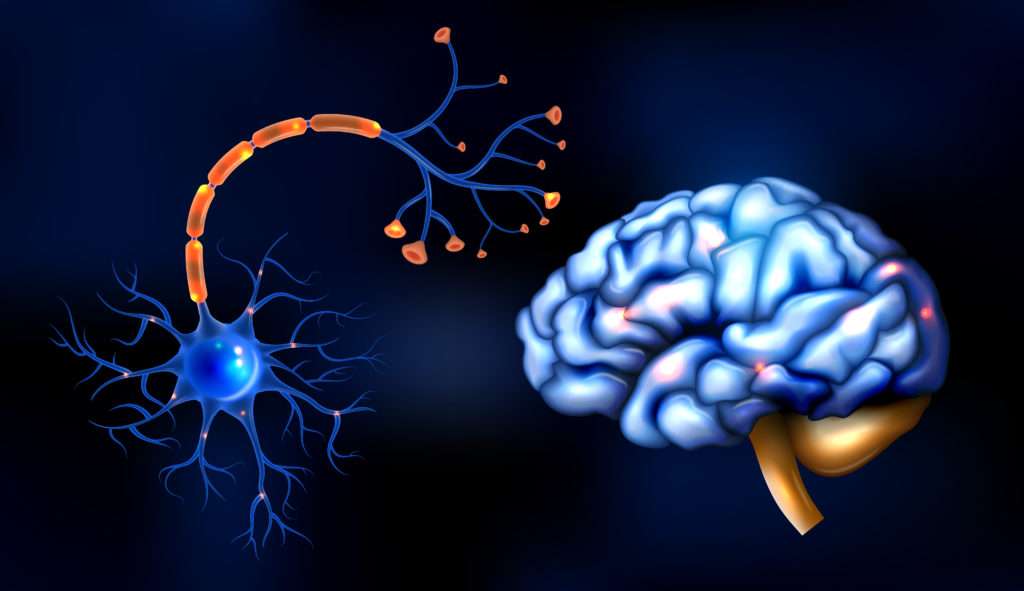What is happiness? How can we achieve it? And why does it matter? These are some of the questions that have fascinated philosophers, psychologists, and neuroscientists for centuries. In this blog post, we will explore the science behind happiness and reveal some of the secrets to living a fulfilling life.
Happiness is a complex and subjective phenomenon that can be defined in different ways. Some people may equate happiness with pleasure, satisfaction, or well-being. Others may view happiness as a state of mind, a feeling, or an attitude. However, happiness is not just a fleeting emotion or a temporary mood. It is also a skill that can be learned, practiced, and improved.
Understanding happiness scientifically can help us discover the factors that influence our happiness and the ways we can enhance it. By applying the insights from neuroscience, psychology, and sociology, we can uncover the secrets to a fulfilling life and achieve sustainable happiness.
The Neuroscience of Happiness
Our brains play a crucial role in our happiness. Different brain regions are involved in processing and regulating our emotions, thoughts, and behaviors. Some of the brain regions associated with happiness are:

- The prefrontal cortex: This is the part of the brain that is responsible for executive functions, such as planning, decision making, and self-control. It also helps us regulate our emotions and cope with stress. Studies have shown that people with higher activity in the left prefrontal cortex tend to be happier and more optimistic than those with higher activity in the right prefrontal cortex.
- The amygdala: This is the part of the brain that is involved in emotional processing, especially fear and anxiety. It helps us detect and respond to threats and dangers. However, excessive activation of the amygdala can lead to chronic stress, anxiety, and depression. People who are happier tend to have lower activity in the amygdala and better control over their emotional reactions.
- The hippocampus: This is the part of the brain that is involved in memory formation and consolidation. It helps us store and recall information and experiences. It also plays a role in learning and creativity. The hippocampus is sensitive to stress and can shrink in size due to prolonged exposure to cortisol, the stress hormone. People who are happier tend to have larger and healthier hippocampi and better memory and cognitive functions.
Our brains also produce and release various neurotransmitters and hormones that influence our happiness. Some of the most important ones are:
- Dopamine: This is the neurotransmitter that is associated with reward, motivation, and pleasure. It helps us pursue our goals and enjoy the outcomes. It also enhances our attention and learning. Dopamine is released when we experience something new, exciting, or satisfying. However, dopamine can also be addictive and lead to cravings and compulsions. People who are happier tend to have optimal levels of dopamine and balance their reward-seeking behavior with other sources of happiness.
- Serotonin: This is the neurotransmitter that is associated with mood, social behavior, and sleep. It helps us regulate our emotions and feel calm and content. It also affects our appetite, digestion, and immune system. Serotonin is influenced by our environment, diet, and lifestyle. It is also affected by our social interactions and relationships. People who are happier tend to have higher levels of serotonin and engage in activities that boost their mood and well-being.
- Oxytocin: This is the hormone that is associated with love, trust, and bonding. It helps us form and maintain social connections and relationships. It also reduces stress and anxiety and promotes empathy and compassion. Oxytocin is released when we hug, kiss, or cuddle with someone we care about. It is also released when we help others or receive support from them. People who are happier tend to have higher levels of oxytocin and cultivate meaningful connections with others.
One of the most fascinating aspects of our brains is their ability to change and adapt in response to our experiences. This is called neuroplasticity, and it means that we can literally rewire our brains for happiness. By engaging in positive and beneficial activities, such as meditation, exercise, learning, and socializing, we can strengthen the neural pathways and networks that are associated with happiness and weaken the ones that are associated with unhappiness. We can also create new neurons and synapses that enhance our cognitive and emotional functions. Neuroplasticity gives us the power to shape our brains and our happiness.
Psychological Perspectives on Happiness
Our happiness is also influenced by our psychological processes, such as our thoughts, beliefs, and attitudes. How we perceive and interpret ourselves, others, and the world around us can have a significant impact on our happiness. Some of the psychological perspectives on happiness are:
- The role of mindset in happiness: Our mindset is the way we think about our abilities, talents, and potential. It can be either fixed or growth-oriented. A fixed mindset is the belief that our qualities are innate and unchangeable. A growth mindset is the belief that our qualities can be developed and improved through effort and learning. Research has shown that people with a growth mindset tend to be happier and more successful than those with a fixed mindset. They are more likely to embrace challenges, learn from feedback, and persist in the face of obstacles. They also have a more positive and optimistic outlook on life and themselves.
- Cognitive biases and their effects on happiness: Our cognitive biases are the mental shortcuts and errors that we make when we process information and make decisions. They can distort our reality and affect our happiness. Some of the common cognitive biases that can undermine our happiness are:
- The negativity bias: This is the tendency to focus more on the negative aspects of a situation than the positive ones. It can make us overlook or minimize our achievements, strengths, and opportunities. It can also make us exaggerate or magnify our failures, weaknesses, and threats. The negativity bias can lead to low self-esteem, pessimism, and depression.
- The confirmation bias: This is the tendency to seek, interpret, and remember information that confirms our existing beliefs and opinions. It can make us ignore or reject evidence that contradicts or challenges our views. It can also make us overestimate our accuracy and validity and underestimate our errors and biases. The confirmation bias can lead to narrow-mindedness, prejudice, and dogmatism.
- The hedonic adaptation: This is the tendency to adapt to and take for granted the positive changes in our lives. It can make us lose appreciation and gratitude for the things that make us happy. It can also make us chase after more and more external sources of happiness, such as money, fame, or possessions, without ever feeling satisfied or fulfilled. The hedonic adaptation can lead to dissatisfaction, boredom, and greed.
- Strategies for cognitive reframing: Cognitive reframing is the technique of changing the way we think about a situation or event by adopting a different perspective or interpretation. It can help us overcome our cognitive biases and enhance our happiness. Some of the strategies for cognitive reframing are:
- Finding the silver lining: This is the strategy of finding the positive aspects or benefits of a negative situation or event. It can help us cope with stress, adversity, and disappointment. It can also help us appreciate and learn from our challenges and grow as a person.
- Challenging negative thoughts: This is the strategy of identifying and disputing the irrational, distorted, or unhelpful thoughts that cause us to feel unhappy or unhappy. It can help us replace them with more realistic, balanced, and constructive thoughts. It can also help us improve our self-esteem, confidence, and optimism.
- Practicing positive affirmations: This is the strategy of repeating positive statements or phrases that reflect our goals, values, and aspirations. It can help us reinforce our positive beliefs and attitudes and motivate us to achieve our desired outcomes. It can also help us boost our mood, energy, and happiness.
Social Connections and Happiness

Our happiness is also influenced by our social connections and relationships. We are social beings who need to interact and communicate with others. Our social connections and relationships can provide us with support, belonging, and love. They can also enrich our lives with joy, laughter, and fun. Some of the aspects of social connections and happiness are:
- The importance of social relationships for happiness: Our social relationships are the bonds that we form and maintain with other people, such as our family, friends, colleagues, and neighbors. They are essential for our happiness and well-being. Research has shown that people who have strong and supportive social relationships tend to be happier and healthier than those who are isolated or lonely. They also tend to live longer and have lower risks of developing mental and physical illnesses. Our social relationships can also influence our happiness by providing us with feedback, advice, and encouragement. They can also help us cope with stress, adversity, and trauma. They can also inspire us to grow, change, and improve ourselves.
- Effects of social media on happiness: Social media are the platforms and applications that allow us to connect and communicate with others online, such as Facebook, Twitter, Instagram, and Snapchat. They can have both positive and negative effects on our happiness. On the one hand, social media can help us stay in touch with our existing friends and family, as well as make new ones. They can also help us share our thoughts, feelings, and experiences with others. They can also help us access information, entertainment, and opportunities. On the other hand, social media can also harm our happiness by exposing us to unrealistic or idealized images of others, such as their appearance, achievements, or lifestyles. They can also make us compare ourselves to others and feel inadequate or inferior. They can also distract us from our present moment and our real-life interactions. They can also expose us to negativity, criticism, or cyberbullying
Cultivating Meaningful Connections
One of the best ways to enhance our happiness is to cultivate meaningful connections with others. Meaningful connections are the relationships that are based on mutual trust, respect, and care. They are the relationships that make us feel valued, understood, and supported. They are also the relationships that challenge us, inspire us, and help us grow.
However, cultivating meaningful connections is not always easy. It requires time, effort, and skills. It also requires overcoming some of the barriers and challenges that may prevent us from connecting with others. Some of the tips for cultivating meaningful connections are:
- Be authentic: One of the keys to cultivating meaningful connections is to be authentic. This means being honest, open, and vulnerable with others. It also means being true to ourselves and expressing our thoughts, feelings, and needs. Being authentic can help us attract and connect with people who share our values, interests, and goals. It can also help us build trust and intimacy with others.
- Be curious: Another key to cultivating meaningful connections is to be curious. This means being interested, attentive, and engaged with others. It also means asking questions, listening actively, and giving feedback. Being curious can help us learn more about others and their perspectives, experiences, and stories. It can also help us show respect and appreciation for others.
- Be compassionate: A third key to cultivating meaningful connections is to be compassionate. This means being empathetic, caring, and supportive of others. It also means being kind, generous, and helpful to others. Being compassionate can help us understand and relate to others and their emotions, needs, and challenges. It can also help us create positive and lasting impressions on others.
By being authentic, curious, and compassionate, we can cultivate meaningful connections with others and enhance our happiness and well-being.
